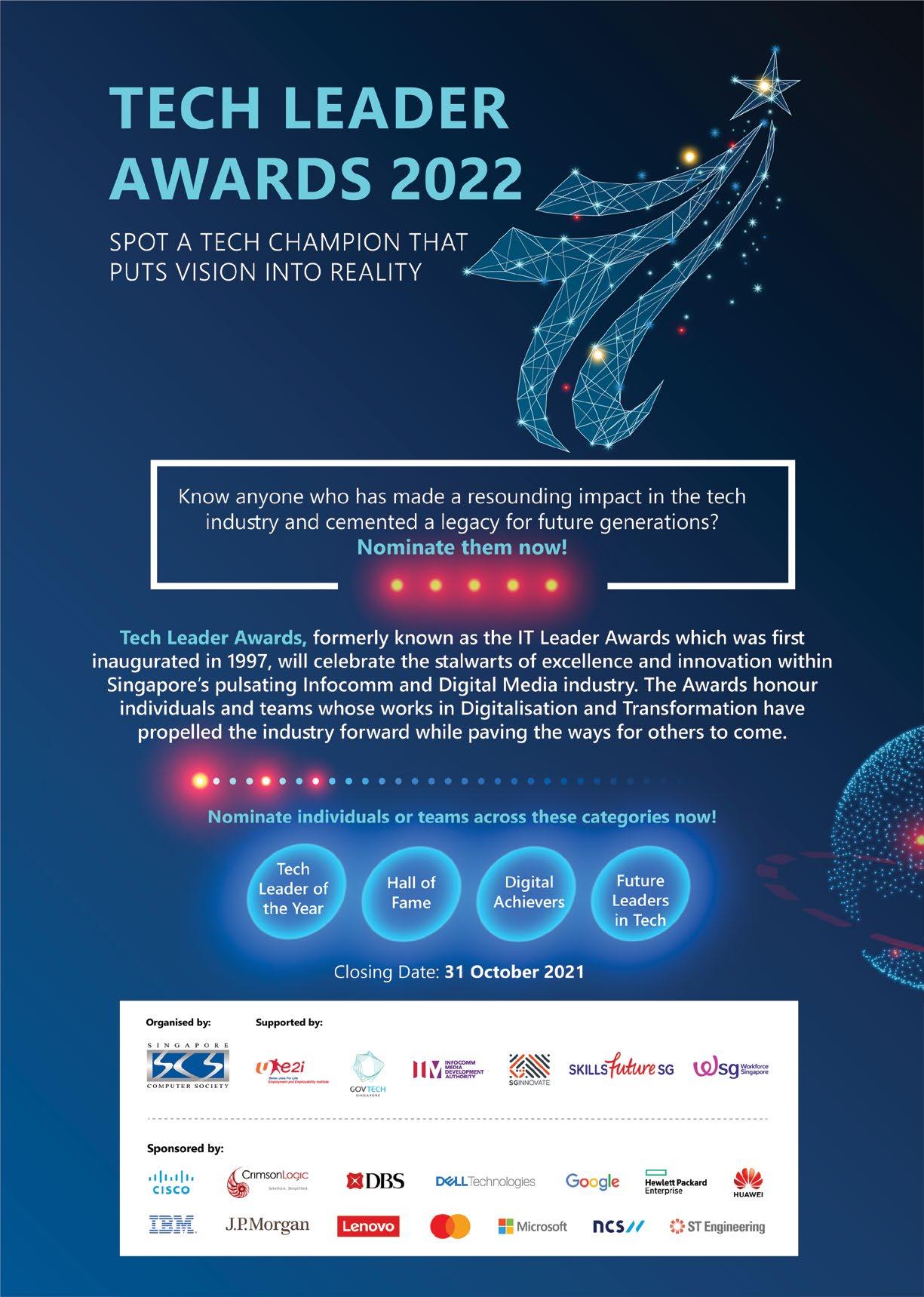
3 minute read
AI Ethics and Governance Grows in Importance in Singapore
To support AI development, the AI Ethics and Governance Body of Knowledge (BoK) was first launched in October 2020 – offering a set of guidelines with fairness, explainability and transparency forming the core, standard set of ethical values.
Advertisement
Almost a year on, the BoK’s significance has grown. In July, Minister for Communications and Information Mrs Josephine Teo spoke at the ATxAI Conference about the importance of building user trust in AI to foster an environment where businesses and consumers feel safe and confident about using digital technologies.
With AI increasingly deployed across sectors such as healthcare, legal, and manufacturing, building a safe and fair AI-enabled environment has become especially critical. The BoK therefore serves to address the gap between AI researchers and experts who develop state-of-the-art AI technologies, and the diverse stakeholders who operate, interact with, and are otherwise impacted by these technologies.
In celebration of the AI Ethics and Governance BoK’s 1st anniversary, SCS is extending complimentary access to all SCS members! Get your digital copy (worth $30) at https://ai-ethics-bok.scs.org.sg
AI ETHICS AND GOVERNANCE IN ACTION
In tandem with the AI Ethics movement, organisations from various sectors of the industry have been encouraged to pledge their commitment to:
• Become more aware of ethical issues in the development and deployment of AI solutions • Share understanding, knowledge and awareness of the need for ethics with colleagues • Participate in AI Ethics and Governance training and certification programmes
To understand more about the AI Ethics and Governance pledge or pledge on behalf of your organisation, please email
rachel.seetho@scs.org.sg
Launched jointly in April 2021 by Singapore Computer Society and Nanyang Technological University, this certification course is designed to help professionals acquire knowledge in applying ethical AI practices in organisations as well as understand and help societies solve problems brought about by the impact of AI.
The certification course will examine candidates’ competence in five areas of AI Ethics and Governance:
• Body of Knowledge (BoK) for AI Ethics and Governance • AI Ethics Governance Framework for Organisations • Ethics in Data Processing • Business Liability and Ethics in AI Usage • Governance for AI Explainability
Sign up for the October intake at
www.scs.org.sg/certifications/ application
Keen to Help Proliferate AI Ethics and Governance in Your Organisation?
Aprecursor to the BoK, the AI Ethics and Governance Toolkit provides an overview of AI governance issues and explores a risk-based approach to deploying AI. The Toolkit is useful for both tech and non-tech professionals to understand ethical issues surrounding AI.
THE AI ETHICS AND GOVERNANCE TOOLKIT: AN OVERVIEW
AI Ethics and Governance is important because…
AI can cause harm if improperly configured.
AI can be used to aid responsible decision-making.
AI must be deployed responsibly to inspire trust.
AI Ethics and Governance is everyone’s responsibility because…
During development, developers/data scientists are focused on product functionality rather than ethical considerations.
Without accountability/formal compliance requirements, the product might fall short of customer expectations.
Improper AI deployment can cause legal/ reputational risk and loss of public trust.
The broader team (e.g. business leaders, risk managers, IT or HR staff) can provide greater oversight.
4 PRINCIPLES OF AI ETHICS AND GOVERNANCE
PRINCIPLE 01
Human-Centric
Case Study: Ngee Ann Polytechnic
NP hired EVA, a virtual assistant, to automate the review of application essays – shortening time taken from 470 hours to two. This freed employees to do higher value tasks.
However, EVA did not completely replace the process. NP also implemented internal governance structures and measures to ensure oversight.
PRINCIPLE
02
Transparency
Case Study: UCARE.AI
UCARE.AI, a Singapore-based startup, offers AIpowered cost predictor services to hospitals.
To build trust and confidence, UCARE.AI discloses the parameters in developing the AI to clients, as well as offers explanations for algorithms that affect operations, revenue or customer base.
PRINCIPLE
PRINCIPLE
03 04
Fairness
Case Study: LinkedIn
LinkedIn’s recruitment tool sets the premise that gender does not impact candidate suitability.
To prevent discrimination, qualified candidates are first divided by gender. Each group is then staggered before being combined (e.g. top five women and top five men) to show a balanced mix.
Explainable
Case Study: Visa Asia Pacific
Visa offers Travel Predict, a machine learning product that predicts cardholders’ future travel behaviour.
Predictions are explainable as Visa shares top predictor scores and key performance indicators on prediction and accuracy with issuing banks.






